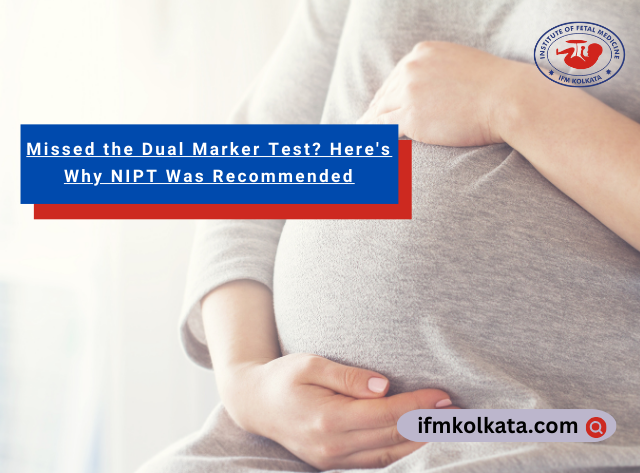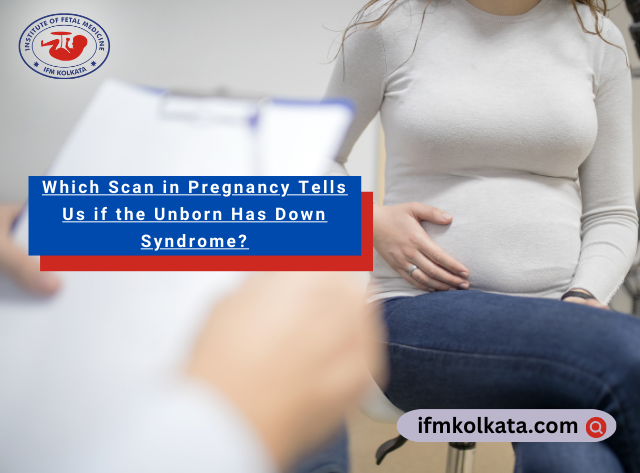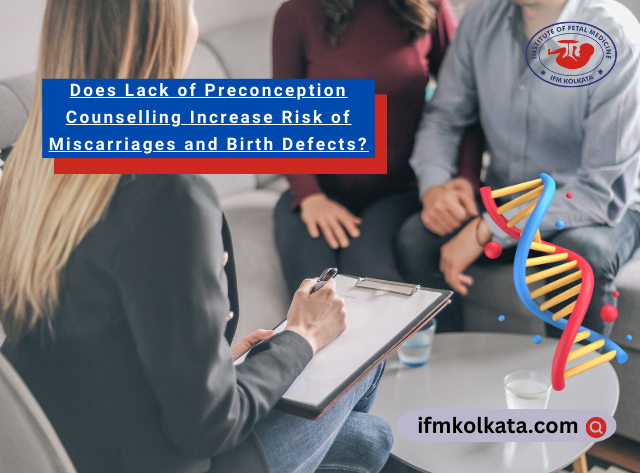When expecting parents receive normal results in the Dual Marker Test, the natural question that follows is:
“Do we still need to do the Quadruple Marker Test?”
At the Institute of Fetal Medicine, Kolkata, this is one of the most frequently asked questions during the second trimester of pregnancy. Let’s break it down for you.
What Is the Dual Marker Test?
The Dual Marker Test is a first-trimester screening typically done between 11 and 13.6 weeks of gestation. It measures two biochemical markers (Free β-hCG and PAPP-A) and, when combined with the NT scan, helps assess the risk of chromosomal conditions such as:
- Down syndrome (Trisomy 21)
- Edward’s syndrome (Trisomy 18)
If your results are low-risk, it is reassuring — but does that mean no further screening is needed?
What Is the Quadruple Marker Test?
The Quadruple Marker Test is a second-trimester screening typically performed between 15 and 22 weeks of pregnancy. It measures four hormones in the mother’s blood:
- Alpha-fetoprotein (AFP)
- Human chorionic gonadotropin (hCG)
- Estriol (uE3)
- Inhibin A
This test provides more accuracy than the Triple Marker Test and helps evaluate the risk of:
- Neural tube defects (like spina bifida)
- Chromosomal abnormalities (Down syndrome, Trisomy 18)
- Certain pregnancy-related complications
It is especially recommended if the first-trimester screening was missed or was inconclusive.
If Dual Marker Test Was Normal, Is Quadruple Marker Necessary?
The Answer Depends On:
- Whether a NT scan was done along with the Dual Marker Test
- If both NT scan and Dual Marker were completed and found low risk, and there’s no family or clinical history of concern, Quadruple Marker may not be mandatory.
- If the NT scan was missed or unclear
-
- In that case, the Quadruple Marker Test may be recommended for additional reassurance.
- If any soft markers were found in anomaly scan
-
- Your doctor may suggest a Quadruple Marker Test or NIPT to rule out chromosomal issues.
- If first-trimester screening was missed altogether
-
- Then a Quadruple Marker Test is strongly advised in the second trimester.
Role of Genetic Counselling
At the Institute of Fetal Medicine, Kolkata, we offer individualized counselling to guide you through your screening options. Our goal is to:
- Help you understand what your results mean
- Avoid unnecessary tests
- Recommend only what’s truly needed for your pregnancy
So, What’s the Final Take?
If you had a normal Dual Marker Test with an NT scan, and no risk indicators show up in your second-trimester scans, your doctor may not recommend a Quadruple Marker Test.
However, if there are missed screenings, borderline results, or structural findings, a Quadruple Marker Test may add significant value.
Why Choose Institute of Fetal Medicine, Kolkata?
- Experienced fetal medicine consultants and genetic counsellors
- Accurate and timely prenatal testing
- Personalized risk assessment plans
- Trusted center for pregnancy care in Eastern India
Still Confused?
📞 Talk to our fetal medicine team today
📍 Visit Institute of Fetal Medicine, Kolkata for expert guidance
152, Shyama Prasad Mukherjee Rd, Kolkata, West Bengal 700026. Rashbehari crossing, Near Kalighat Metro Gate No. 9




